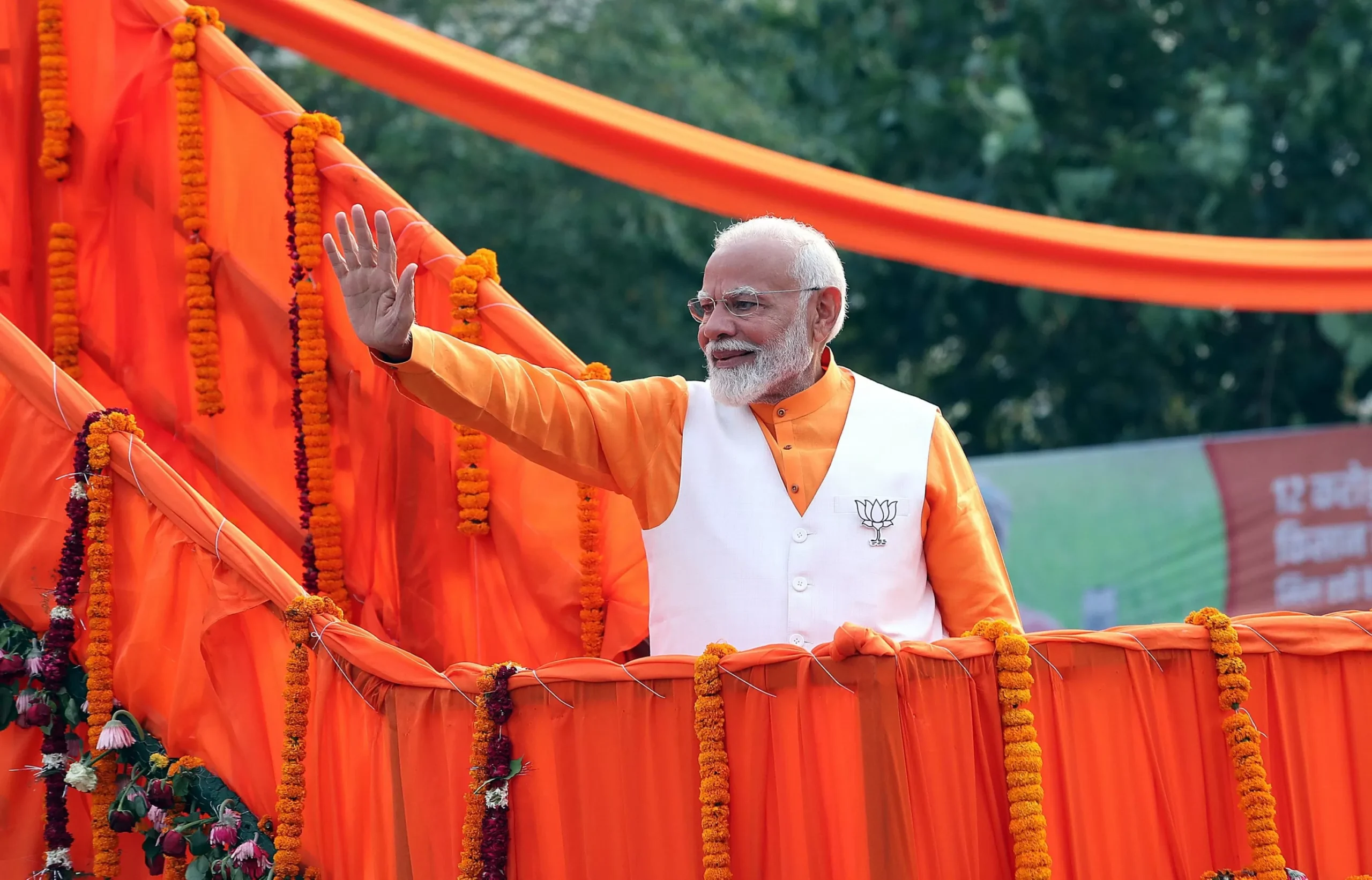Indian Prime Minister Narendra Modi, campaigning for a third term, recently made a statement that has sparked controversy and debate. He claimed that he has been “chosen by God” to serve the nation. This statement has been met with mixed reactions, with some praising his confidence and others questioning the role of religion in politics.
Speaking to large crowds at a rally in Uttar Pradesh, Modi said, “I have been chosen by God to serve the people of India. I am not here because of any political party or leader, but because of the blessings of God.” This statement was met with loud cheers and applause from his supporters, who see him as a strong and decisive leader.
Modi’s statement has been interpreted in different ways by different people. Some see it as a sign of his unwavering faith and belief in a higher power, while others view it as a political tactic to gain support from the religious majority in the country. However, regardless of the interpretation, one thing is clear – Modi’s statement has once again put the spotlight on the intersection of religion and politics in India.
Religion has always played a significant role in Indian politics, with politicians often using it as a tool to garner votes. However, Modi’s statement goes beyond the usual rhetoric and raises questions about the extent to which religion should influence political leaders and their decisions. It also brings into focus the idea of a “chosen one” and whether a political leader can truly claim to have been chosen by a higher power.
Modi’s supporters see his statement as a reflection of his strong leadership and unwavering commitment to the nation. They believe that his actions and policies have been guided by a higher purpose, and his statement only reaffirms their belief in him. They see him as a leader who is not afraid to speak his mind and stand by his convictions, even if it means going against the norms of traditional politics.
On the other hand, his critics have raised concerns about the mixing of religion and politics. They argue that a political leader should not bring their personal beliefs into their role as it can lead to biased decision-making and exclusion of certain communities. They also question the idea of a “chosen one” and argue that it goes against the principles of a democratic society where leaders are elected by the people, not chosen by a higher power.
Modi’s statement has also sparked a debate on the role of religion in a diverse and secular country like India. While the majority of the population identifies as Hindu, there are also significant Muslim, Christian, Sikh, and other religious communities. In a country where religious tensions and conflicts have been a recurring issue, some fear that Modi’s statement could further polarize the society and create divisions among different religious groups.
However, it is important to note that Modi’s statement does not necessarily mean that he will only work for the benefit of one religious community. As the Prime Minister of a diverse nation, it is his duty to serve and protect the interests of all citizens, regardless of their religion. His statement should not be seen as a reflection of his political agenda but rather as a personal belief that has no bearing on his role as a leader.
In the past, Modi has been criticized for his silence on issues concerning religious minorities and for not doing enough to curb hate speech and violence against them. His statement has only added fuel to these criticisms, with some questioning whether he truly represents the interests of all Indians or just a select few.
As the country gears up for the upcoming elections, it is important to focus on the issues that truly matter – economic growth, social welfare, and national security. While religion is an integral part of Indian society, it should not be the sole factor in deciding the fate of a nation. It is the responsibility of the citizens to vote for a leader who has a vision for the country and the ability to bring about positive change, regardless of their religious beliefs.
In conclusion, Modi’s statement of being “chosen by God” has sparked controversy and debate, but it should not overshadow the important issues at hand. As a leader, it is his duty to serve the people of India, and his personal beliefs should not interfere with his role as the Prime Minister. Let us focus on the progress and development of our nation and not get swayed by religious rhetoric. After all, it is the actions and policies of a leader that truly matter, not their claims of being “chosen by God”.





![Complete BritRail Pass Guide [Types, How to Use It, Pros + Cons]](https://inside-news.uk/wp-content/uploads/2025/06/00221EB4-BCA2-4DBB-6CD4-83DBC37D71FA-120x86.webp)
















